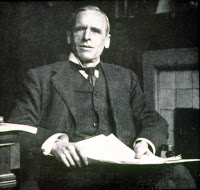Biology
 Coined: by Hippocrates to denote a vital principle (ca. 460 BC ? ca. 370 BC) eg in the famous Hippocratic Treatise "Sacred Disease" it is mentioned that the corruption of the brain is caused by the phlegm and the bile ... when they rush (????????/ormisoun) to the brain from the rest of the body by way of the veins.
Coined: by Hippocrates to denote a vital principle (ca. 460 BC ? ca. 370 BC) eg in the famous Hippocratic Treatise "Sacred Disease" it is mentioned that the corruption of the brain is caused by the phlegm and the bile ... when they rush (????????/ormisoun) to the brain from the rest of the body by way of the veins.
- Renin-angiotensin-aldosterone Made Simple
The body has many systems that work together in order to maintain homeostasis. The renin-angiotensin-aldosterone pathway is no different. It has 3 functions: (1) to maintain a proper blood pressure/blood flow, (2) to maintain the right concentration of...
- Human Body Systems
Human Body Systems!Integumentary System: Your body is very prone to damage, and that's why we have this system! This is an organ system that helps protect the body. It has many functions such as to cushion, excrete wastes, regulate temperatures...
- #115 Control And Co-ordination In Mammals, The Nervous System
Humans, like all living organisms, can respond to changes in the environment and so increase survival. Humans have 2 control systems to do this: the nervous system and the endocrine (hormonal) system. The human nervous system controls...
- Myelolipoma
Term: myelolipomaLiterally meaning: ?growth of lipoid inside?Origin: Anc Greek??????/myelos(=marrow, brain) > ???/myo(=enclosed like the muscle inside body or rat in its nest=epimys)+(-???)/(-oma)=suffix denoting state or condition of mass growthCoined/HistoryThese...
- Spleen
Term: spleen Origin: Anc Greek ? ????? /spleen (=spleen) > ????????/splahnon (=vincera) > ????? /pleko (=knit). Latin this root became lien afer losing its initial sp Definition: a vascular lymphoid organ, lying in the human body to...
Biology
hormone
Term : hormone
Origin: Anc Greek ????/orme(=to rush, to set in motion)

In modern medical terminology the term ?hormone? was coined by Ernest Henry Starling (1866-1927) in his Croonian Lectures to the Royal College of Physicians in June 1905 (The Lancet" 1905) who reported his discovery of a substance made by glands in the small intestine that stimulated pancreatic secretion (secretin). Starling in these lectures states the following: "These chemical messengers, however, or (from ?????=I excite or arouse), as we might call them, have to be carried from the organ where they are produced to the organ which they affect by means of the blood stream and the continually recurring physiological needs of the organism must determine their repeated production and circulation through the body".
Definition:
Any chemical substance, usually a peptide or steroid, produced by one tissue of a multicellular organisms (including plants) and conveyed the bloodstream to another to control and regulate the activity of certain cells or organs.
comments:
Starling EH, 1905 The Chemical Correlation of the functions of the body, Lecture I. The Lancet 2: 339-341.
Starling EH, 1905 The Chemical Correlation of the functions of the body, Lecture II. The Lancet 2: 423-425.
Starling EH, 1905 The Chemical Correlation of the functions of the body, Lecture III. The Lancet 2: 501-503.
Starling EH, 1905 The Chemical Correlation of the functions of the body, Lecture IV. The Lancet 2: 579-583
- Renin-angiotensin-aldosterone Made Simple
The body has many systems that work together in order to maintain homeostasis. The renin-angiotensin-aldosterone pathway is no different. It has 3 functions: (1) to maintain a proper blood pressure/blood flow, (2) to maintain the right concentration of...
- Human Body Systems
Human Body Systems!Integumentary System: Your body is very prone to damage, and that's why we have this system! This is an organ system that helps protect the body. It has many functions such as to cushion, excrete wastes, regulate temperatures...
- #115 Control And Co-ordination In Mammals, The Nervous System
Humans, like all living organisms, can respond to changes in the environment and so increase survival. Humans have 2 control systems to do this: the nervous system and the endocrine (hormonal) system. The human nervous system controls...
- Myelolipoma
Term: myelolipomaLiterally meaning: ?growth of lipoid inside?Origin: Anc Greek??????/myelos(=marrow, brain) > ???/myo(=enclosed like the muscle inside body or rat in its nest=epimys)+(-???)/(-oma)=suffix denoting state or condition of mass growthCoined/HistoryThese...
- Spleen
Term: spleen Origin: Anc Greek ? ????? /spleen (=spleen) > ????????/splahnon (=vincera) > ????? /pleko (=knit). Latin this root became lien afer losing its initial sp Definition: a vascular lymphoid organ, lying in the human body to...
